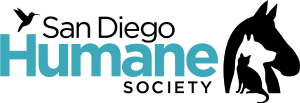Found Injured Wildlife
What Should I Do if I Find an Injured Wild Animal?
Never feed wildlife, as this can often do more harm than good. If you find an animal who is visibly injured, ill or in danger from a predator or neighborhood cat or dog, here are tips for how to bring a wild animal to Project Wildlife or when to contact someone to help.
Follow these basic rules and check below for special notes about certain animals. If you’ve found an injured or orphaned baby animal, check out our baby-specific tips.
- Pick the animal up using a towel, cloth or gloves.
- Put them in an escape-proof box or container with air holes and a towel on the bottom.
- Keep them in a quiet place away from children or other animals, and cover the container with a towel to keep dark if necessary.
- Do not attempt to feed or give water.
- Minimize handling and interaction.
- Provide a low heat source, such as a heating pad set to low, under half the box.
- Contact and drop-off location information for Project Wildlife here.
Rescue Notes
Adult Squirrels
If the squirrel is alert, do not attempt to handle it. Cover with a cardboard box with air holes where the squirrel is lying (or gently nudge out of harm's way with the end of a broom). Weight the box down with a rock or something heavy, and contact Project Wildlife. If the squirrel is not very alert or cannot move, attempt to nudge into a box, bucket or carrier with the end of a broom, piece of cardboard, or another similar object. Do not handle it with your bare hands! Cover the container snugly (make sure there are air holes) and bring it to a rehabilitator such as Project Wildlife.
Birds
Visit our Wildlife Help Hub: Birds Self-Help Center for more information.
Hummingbird Tip
Do not place hummingbird feeders near a window. The feeder is best placed far enough away from the window that there is not a clear reflection. The best location is at least two feet from the window and six feet above the ground.
Animals you should NOT attempt to rescue:
Coyotes and Bobcats
Please contact us for assistance if you have found an injured, orphaned or sick predator, such as coyotes or bobcats. Project Wildlife works with these species at our Ramona Wildlife Center.
Deer/Fawns
Deer often leave their fawns alone when grazing; never assume a lone fawn is orphaned. Leave the fawn undisturbed and check back in 3-4 hours before calling for assistance. For an orphaned fawn or sick or injured deer, call San Diego Fawn Rescue (858-549-4149 or 858-603-0170) or Fish and Game (760-535-5735) and keep an eye on the animal until an agent or animal control officer arrives.
Raccoons
They can carry rabies and baylisascaris worms, both of which are contagious to you, and distemper, which can be transmitted to your pets. The best thing to do is contact Project Wildlife and keep an eye on the animal until an officer arrives.
Skunks
This species is a high-risk rabies vector species in California. Never attempt to handle a skunk on your own. Anyone who gets bitten while handling a skunk should notify their physician and public health department within 24 hours for next steps. If the skunk was contained during the altercation, please take it directly to Project Wildlife. Any skunk with paralysis, unsteadiness, discharges from the nose and eyes or unusual behavior may be suffering from distemper, encephalitis, rabies or other diseases. Contact Project Wildlife for advice about an injured or sick skunk.
Mountain Lions and American Black Bears
Never attempt to approach an ill, injured or orphaned mountain lion or bear. Contact the California Department of Fish & Wildlife (858-467-4201) for all lion and bear situations and they will determine the best next steps. Our Ramona Wildlife Center will be contacted by them to transfer the animal to our Ramona Campus for care when appropriate.
How to Coexist with Wildlife
From the coast to the mountains to the desert to urban neighborhoods, San Diegans share this beautiful landscape with more than 320 animal species. Their role in our ecosystem can't be understated. In this guide, you will find crucial information for coexisting with the diverse wildlife in the San Diego region.

